{{ post.title }}
{{ post.excerpt }}
Read full storyIf you are teaching students who intend to sit TOEFL or IELTS, you will need to teach the format of the test. For example, candidates need a strategy to recognize and answer Reference Questions in TOEFL and Matching Heading Questions in IELTS. However, while it’s vital to focus on question-type strategy, you should ensure your students are comfortable speaking and writing about a range of TOEFL and IELTS environmental topics.
Why? Because environmental topics are now appearing frequently in both TOEFL and IELTS. Learning to speak and write comfortably about environmental topics will go a long way to improve your candidates’ results on exam day.
TOEFL and IELTS Reading texts explore many different academic disciples, from anthropology to zoology. There’s a lot to cover, especially if your students do not read far outside their personal interests. However, teaching TOEFL and IELTS environmental topics will help cover a greater portion of the unknown. You’ll be efficiently using your valuable prep time, by educating your students on topics that are likely to appear on test day.
We recommend focusing on topic themes, rather than teaching chunks of supposed most-used vocabulary in isolation. The latter can be overwhelming for students. In addition, teaching individual lexical terms and their derivatives doesn’t prepare your students to discuss topics in context.
To help you and your students, Off2Class has released its first five lessons on the environment. We hope that they will offer relevant vocabulary, provoke thinking, and provide ample opportunities for practice. Of course, these lessons are great for all upper intermediate and advanced ESL students. They are not restricted to TOEFL and IELTS candidates.
Here’s a short overview of each lesson:
This lesson is a general introduction to the major environmental issues. It looks briefly at the language around cause and effect. A lesson to get your students thinking!
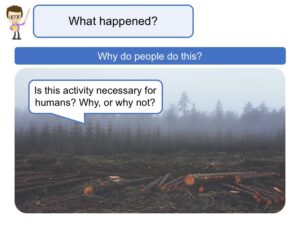
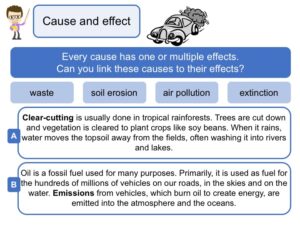
According to projections, the planet’s population will peak mid-century at 9 billion. Clearly, there are problems ahead. Will advancements in agricultural technology allow us to feed an increasingly large population?
As we cut down more and more trees to cover more and more landscape with concrete, metal, glass, and asphalt, are we providing urban environments in which people can flourish? Many cities are now megacities, containing more than 10 million inhabitants. Can such an enormous urban environment be good for anyone?
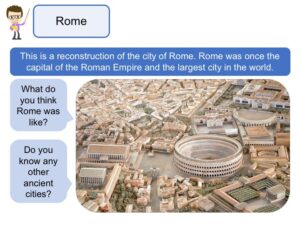
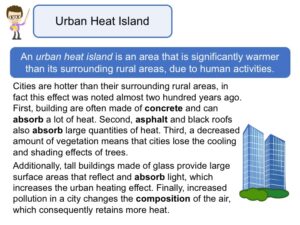
In the 20th century, farming underwent radical changes, that allowed us to double our agricultural output. But at what cost? Hundreds of millions of pounds of chemical pesticides are sprayed each year onto crops. We don’t really know if they are safe. And in the background, our treatment of livestock causes untold suffering of millions of animals.
Species are disappearing as we destroy their habitats. As we construct roads and buildings and ever-larger developments, we degrade the living areas of countless species. And while you cannot stop progress, what are we going to lose forever?
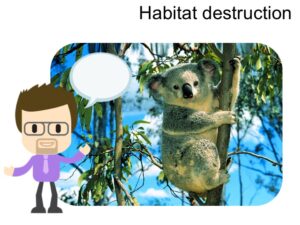
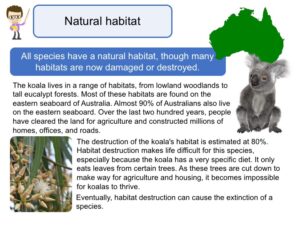
We think the environment is worth talking about, whatever your views on the major issues. We encourage you to use the lessons to promote fluency with your upper-intermediate and advanced student.
4 Comments
Alaknanda Sen says:
December 11, 2017 at 12:54 pm
The presentation is very engaging and students can recollect vocabularies easily when they are associated with pictures. With relevant and technical lexical resources learnt in this manner, students will easily associate it with the subject.
James Heywood (Off2Class) says:
December 11, 2017 at 2:49 pm
Thanks Alaknanda!
Sook Fun Yau says:
December 11, 2017 at 7:50 pm
Thanks for these ideas. They are great and the questions lend themselves to higher order thinking. Students are better engaged when their views are asked for. I see potential in setting collaborative tasks for groups – each group to research one city or animal of their choice and then present their work to the class.
James Heywood (Off2Class) says:
December 11, 2017 at 11:45 pm
Thanks for stopping by. We hope you and your students enjoy the lessons.
Best wishes,
James